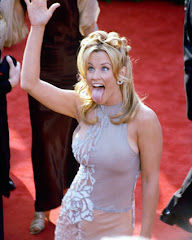It's been said that we aren't "human beings having a spiritual experience but spiritual beings having a human experience." That would explain why some people have a more spiritual life; they find it easier to tap into the spiritual being inside their body. It would also explain why so many of us don't tap in until something radical happens in our human experience - a death, an illness, a loss - to really shake up our perception of what matters. With these human experiences comes the realization that it can all be gone in an instant, and what are we left with, if not the spirit?
What happens, then, with people who aren't "spiritual?" Instead of being a human being who either doesn't believe in all that "stuff" or who just doesn't choose to tap into that side of life, perhaps it's that some spiritual beings are struggling with human shells that won't let them push through.
So if we are spiritual beings having a human experience, what's that mean for people who have autism? Are they spiritual beings having autistic human experiences?
People sometimes point out to me that my son, Colin, is so joyful, so cheerful, so full of life, light, and spirit. I didn't always see it. I've battled so many times to get him to do what I wanted him to do, like get dressed and out the door, or to stop him from doing something that brought him joy but either scared the bejeebers out of me or made a mess, like waking up in the middle of the night to climb the cupboards to eat Ovaltine with a spoon. Where was my joy in wiping down the walls or hunting him down after an escape? The joy was all his.
Colin's spirit enjoys life. It loves movement. It loves smelling the world and the people in it. It loves noise - hearing it and making it. It's the people around Colin who have a problem, not him.
The day that I started to see through the wiggly, wiry little autistic human body and see Colin's spirit was one of the best days of my life. It was freeing for my spirit. I finally understood what my mother meant when her friends asked her if Colin would be "okay" and she'd reply, "of course Colin will be okay! He's Colin!"
Colin isn't miserable, but I was making myself miserable worrying about him. I see other kids, some with autism, others with other diagnoses, in bodies that distract the world around them from seeing their beautiful spirits. Not one of those kids ever looked miserable to me, except when they couldn't get the rest of us to understand.
That's where I think the cure movement is getting it wrong. Are they really doing it for the "afflicted" or for themselves? Talk to any high-functioning adult - Temple Grandin comes to mind immediately - who used to be more "autistic" as a child. Read the words of a non-verbal person with autism, such as Sarah Stup. These people want to be accepted for their uniqueness, for their spirit within, and not judged by what they look like or act like in their human bodies. They want us to see them, not cure them.
Doesn't it seem we humans eradicate or cure one human disease or disorder, only to have another take its place? Maybe we're not meant to fix this human body. Maybe our frailty, our mortality IS the point, and God's way of telling us that it's not the human body - the human experience - that He wants us to live for. Instead, the joy and the light and the life all can be found if you look past it and into the human spirit.
*Quote by French philosopher Pierre Teilhard de Chardin.
Thursday, December 25, 2008
Subscribe to:
Posts (Atom)






